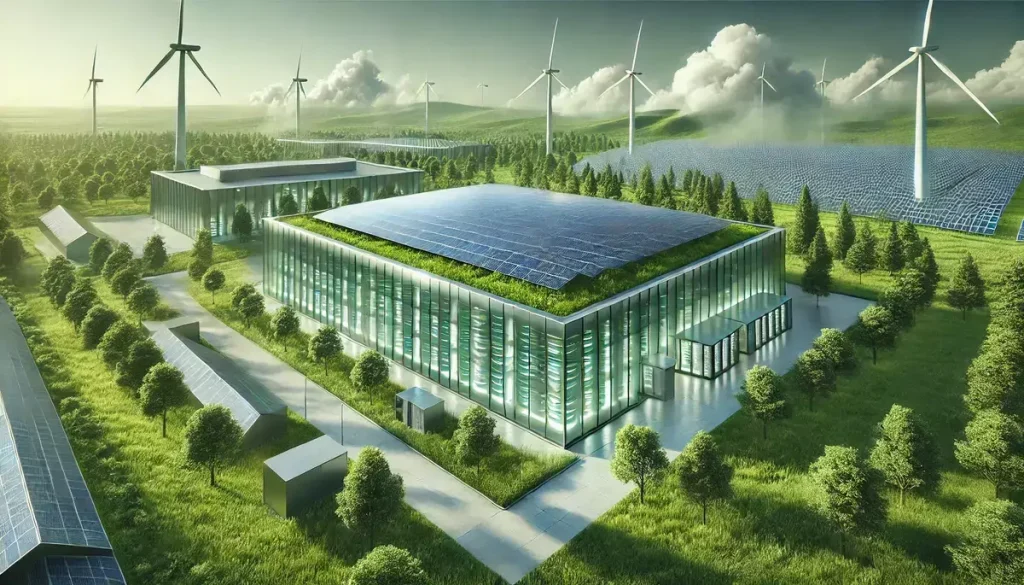The number of data centres in the UK is set to increase by almost a fifth…
Data centres are giant warehouses full of powerful computers used to run digital services from movie streaming to online banking, this website uses one (Although it’s a very efficient and renewable energy powered version).
Here at Green ISP we have been concerned about the environmental impact of Datacentres for the last 20 years, especially the energy demand and Carbon Footprint.
The majority are due to be built in the next five years. However, there are concerns about the huge amount of energy and water the new data centres will consume. Experts have warned it could drive up prices paid by consumers.
Projects backed by US technology giants are among the largest.
Blackstone Group is planning a £10bn AI data centre in Blyth, near Newcastle, covering 540,000 square metres across 10 buildings. Construction is expected to begin in 2031 and last over three years.

Local residents close to these new facilities could see household electricity bills rise due to local data centre operations. Dr Sasha Luccioni, AI and Climate Lead at Hugging Face, warns the UK could face such issues: “Average citizens could see their monthly bills go up by £15 because of these new data centres.” She describes the UK’s rollout schedule as “aggressive” and urges companies to shoulder the costs of the extra power they use.
This is going to place a massive strain on our ability to provide clean and renewable energy over the coming years. The growth in UK data centres could add 71 TWh (terawatt-hours) of electricity demand over the next 25 years, intensifying the need for clean power sources such as offshore wind.
To get an idea of how much that is, In 2024, the UK’s total electricity demand was 319 terawatt-hours, so almost one fifth more demand.
Sources:
https://www.bbc.co.uk/news/articles/clyr9nx0jrzo
https://aimagazine.com/news/can-uk-cope-with-20-rise-in-data-centres-by-2030
